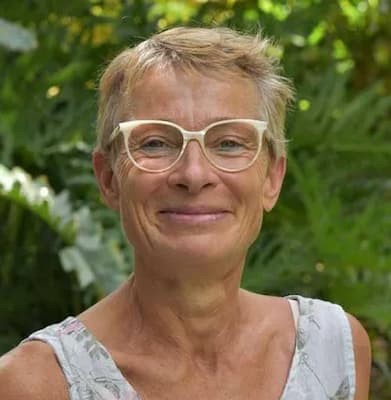
In this article I explore the idea of holistic health and how it differs from a reductionist perspective on health.
Many people try to get ahead in life and feel better about who and what they are and how they feel inside. Many believe that how their bodies work or how they feel inside is somehow wrong and that they need a quick-fix or magic pills to feel better. This way of thinking is underpinned by a perspective on health that is reductionist. It is a way of looking at people as if they are nothing but a collection of components. People are seen as machines and therefore, one thinks, when it comes to healthcare, people should be treated like machines. A little bit of oil here and a few pills there should fix the problem.
But magic pills and quick fixes only deal with symptoms. The cause, the source of the symptoms remains untouched. Magic pills and quick fixes work like paint over rust. The rust remains untreated and spreads as time goes on.
Those who personally profit from the distribution of magic pills and quick fixes do everything to keep the rust in place, the cause or source of the rust hidden and out of sight. They see people's bodies and minds as separate from each other, as bits and pieces, and they believe in people's insufficiency. Their focus on symptoms and classifying individuals into a labelling system is destructive to the holistic view of the person, but that is their business. They want people to keep feeling wrong and incomplete.
Critics such as Glasser (2000) believe that money is a prime reason why the psychiatric and pharmaceutical companies for example propagate the medical cure for mental distress. He wrote, "since our society will never run out of disconnected people and as long as we believe in mental illness, the industry will never stop producing new drugs to treat it" (p. 229).
People who practice holistic health believe that people are much more than the parts we see. The phrase written in Aristotle's book titled ‘Metaphysics' is often used: "The whole is more than the sum of the parts". Practitioners acknowledge and perhaps treat the symptoms, but they primarily focus on restoring people's overall wellness; physical, mental, emotional, social and spiritual wellbeing works as an interconnected whole. Excluding any aspect of the self from awareness is considered unhealthy. Holistic practitioners look at the whole person, consider each person as unique, and do not believe in a one-size-fits-all approach.
There are various ways of practicing holistic health. The key focus of practitioners may be on what is happening in people's bodies or on their minds, but the spiritual aspect of the human being is always taken into account. The ultimate aim is for people to be fully functioning human beings; that is, in an ongoing process of being more and more the person one has the potential to be in an interrelationship with all that is.
Much of the work of holistic practitioners consists of active listening, asking questions, supporting people to help them feel complete and right again, restored as a whole. Their capacity and willingness to be in a genuine relationship with people are essential. According to Moustakas (1994), this genuine relationship "is the essential condition that underlies all phases of therapy, the power that permeates all methods for facilitating meaning and growth" (p. 45). The creation and maintenance of an "I-Thou" versus an "I-It" relationship are essential. "I-Thou" relationships require the awareness of the other as a unique individual. Understanding of that individual comes through open exploration, allowing both parties to fully participate and share in the definition of the emerging relationship.
References:
Glasser, W. (2000). Counseling with choice theory: The new reality therapy. New York: HarperCollins.
Moustakas, C. E. (1994). Phenomenological Research Methods. Thousand Oaks, CA: Sage Publications. https://doi.org/10.4135/9781412995658










